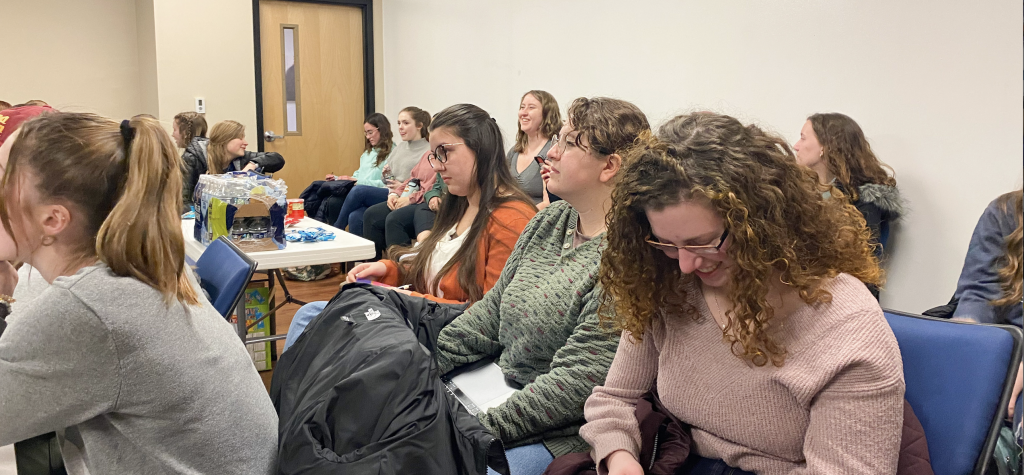The world of teaching seems daunting at times. Teachers often face an array of challenges in creating academic lesson plans, class management or simply listening to students who need someone to talk to. For the teachers who work in urban education, however, these common issues are the least of their concerns.
Liberty University’s Urban Education Club exists to give undergraduate education students the opportunity to have enlightening experiences of the realities of teaching in low-income areas, according to its website. The club hopes to produce teachers that are strong enough to persevere for the kids who need them, thus decreasing the high teacher turnover rate often seen in urban school districts.
Dr. Monica Huband, a professor, online chairwoman for the School of Education and Urban Education Club advisor, spoke at the first meeting of the semester. In her presentation, she spoke about her time in the field and the reality of teaching in tough conditions.
“I know a lot of education majors go into schools, and they are not prepared for what they are really going to face,” Huband said. “They know how to write lessons, design activities and make classrooms look cute, but they don’t know how to deal with kids who are homeless, kids who are hungry (and) kids who have experienced violence and are violent themselves.”
According to the National Center of Education Statistics, students from urban areas often face struggles such as “poverty, limited English proficiency, family instability and poor health,” and that “the condition of urban schools feeds the perception that urban students flounder in decaying, violent environments with poor resources, teachers, and curricula, and with limited opportunities.”
Throughout the semester, the club plans to host a guest speaker and do a book study each meeting. The purpose of these meetings is to give students insight into potential problems they’ll face in the field and how to solve them. Many students join this club to determine if urban education is really the path they want to take.
Harley Rusk, co-president of the club, felt the call while in high school to teach in urban education.
“I just really wanted to be a light for Christ in a lot of places where people struggle to feel loved by their teachers,” Rusk said.
The club reaches out to share God’s love with the community in many ways. One is by collecting toiletries for Miriam’s House, an organization providing aid to the homeless in Lynchburg. The club also joined LiveIt Ministries during the pandemic, visiting apartment complexes, playing with the children there and giving them Bible lessons. Participating in these practicums gave club members a better picture of the situations that their future pupils could be dealing with.
Amanda Works, the other co-president of the club, believes that teachers need to have a deeper understanding of how to teach diverse students.
“Schools are becoming increasingly diverse all across the country, both in terms of racial and cultural diversity and also in terms of social economic status,” Works said. “So, as you have that range of students, we need to be prepared to meet the needs of all of them instead of just expecting the students to be like us.”
Maggie Lyons, a secondary education major, currently plans to work in Lynchburg once she graduates. She felt that participating in this club will give her the tools necessary to teach in the local urban community.
“I just want to be prepared for any setting that I end up teaching in,” Lyons said. “Which is why I joined the club … I want to help each of my students individually and help them succeed.”
In order to become a member of the Urban Education Club, attendees must commit to two semesters of membership and attend four out of the five meetings each semester. Members are also required to participate in the club’s book study and make a one-time purchase of an Association for Supervision and Curriculum Development student membership.
For more information, students can visit https://www.liberty.edu/education/organizations/urban-education-club/ or follow the club on Instagram @urbaneducationclub.
Gambino is the web manager. Follow her on Twitter
